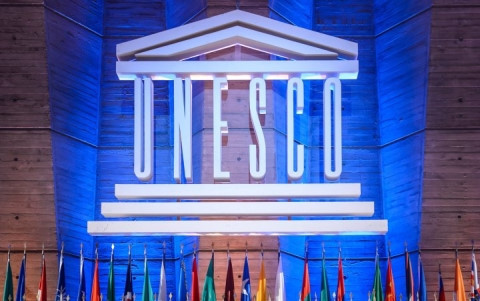After UNESCO, the US plans to withdraw from other UN agencies.
On October 12, the United States announced its withdrawal from the United Nations Educational, Scientific and Cultural Organization (UNESCO).
After taking office, US President Donald Trump decided to withdraw from a series of international agreements such as the North American Free Trade Agreement (NAFTA), the Trans-Pacific Partnership Agreement (TPP) and the Paris Climate Change Agreement.
 |
| Illustration photo: AP |
Although there are many reasons behind the US decision to withdraw from UNESCO, the warning that it will consider continuing to withdraw from other UN organizations reflects the strategy that Donald Trump has long pursued of "America first".
The US withdrawal from UNESCO could be a shock to the organization as the US contributes about 80 million USD/year, equivalent to 20% of UNESCO's annual budget.
The immediate impact is that the US will stop supporting this Organization. By the time the US officially withdrew from UNESCO, its debt had reached nearly 600 million USD. UNESCO Director-General Irina Bokova regretted the US decision.
“In 2011, the US lost its voting rights and stopped its UNESCO contributions. But if we go back in history, not only was the US a founding member of UNESCO, but the whole idea that ‘you can build peace through culture, education, communication’ was an American idea,” Bokova said.
Representatives of several international agencies and countries have reacted to the US decision to withdraw from UNESCO. The Russian Foreign Ministry warned that the US withdrawal from UNESCO would disrupt a number of important projects of the organization. French Ambassador to the United Nations Francois Delattre called on the US to reconsider its decision.
“What I want to say is that UNESCO is an organization that promotes values and ideas through culture, education and science. These values and ideals are important to the United States as well as to France. I think that now more than ever, when these values are still controversial, the participation of the United States is extremely important,” Mr. Delattre said.
Giving reasons for its decision, the US State Department stated that the decision "reflects the United States' growing concerns about UNESCO, the need for reform of the organization, and its continued anti-Israel bias."
US Ambassador to UNESCO Chris Hegadorn also cited two reasons: the increased tensions since UNESCO admitted Palestine as a member state. The second reason is that the organization has been politicized, affecting UNESCO's activities, becoming a forum with anti-Israel bias.
The US decision also comes at a time when UNESCO is voting for a new leader. According to observers, the leading candidate in the race for the position of UNESCO Director-General is Hamad bin Abdulaziz al-Kawari from Qatar, who is not welcomed by the US and Israel.
Hours after the US announced its decision to withdraw from UNESCO, the US representative to the United Nations continued to issue a stern warning aimed at other UN agencies.
This clearly reflects the skepticism about the effectiveness of multilateral organizations and agreements that Donald Trump has long commented on and always questioned whether the US should continue to participate or not.
Withdrawing from the Trans-Pacific Partnership (TPP), the Paris Climate Agreement, NAFTA and planning a series of other actions with the criterion of always putting the interests of the United States above international commitments.
US Ambassador to the United Nations Nikki Haley said that American taxpayers cannot continue to pay for policies that are always hostile to the US. The US will continue to consider other organizations within the UN framework.
However, observers say that UNESCO is a highly prestigious United Nations organization with a large number of members and many important contributions in its main areas of operation.
Withdrawing from this organization will lose the US's role and voice in many important global strategic issues such as education, culture, natural sciences, social sciences, information and communication./.
According to VOV
| RELATED NEWS |
|---|

